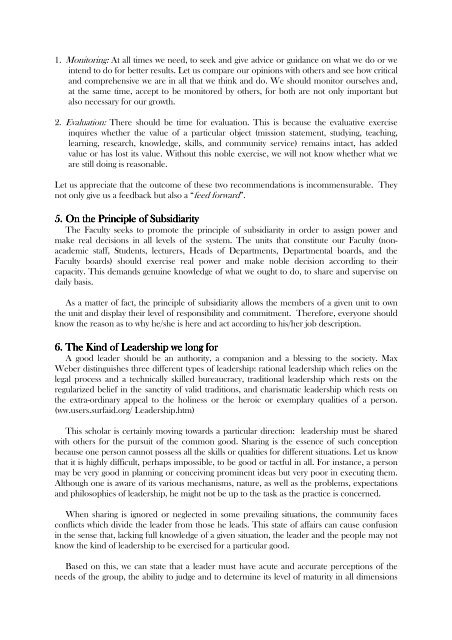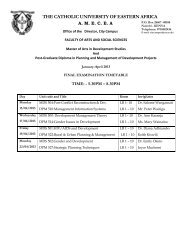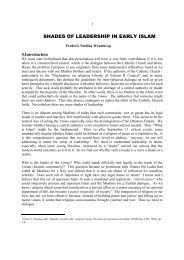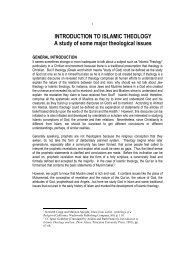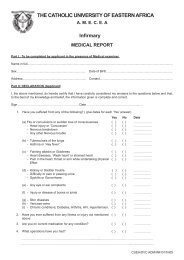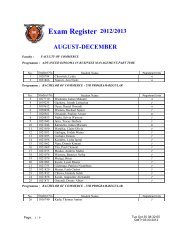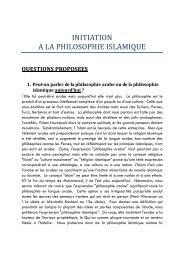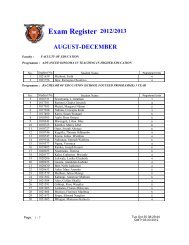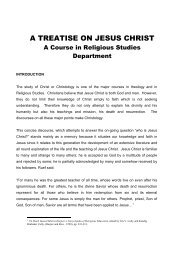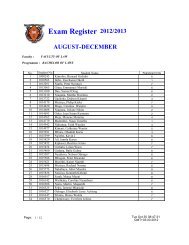FASSC PROFILE.pdf - CUEA
FASSC PROFILE.pdf - CUEA
FASSC PROFILE.pdf - CUEA
You also want an ePaper? Increase the reach of your titles
YUMPU automatically turns print PDFs into web optimized ePapers that Google loves.
1. Monitoring: At all times we need, to seek and give advice or guidance on what we do or we<br />
intend to do for better results. Let us compare our opinions with others and see how critical<br />
and comprehensive we are in all that we think and do. We should monitor ourselves and,<br />
at the same time, accept to be monitored by others, for both are not only important but<br />
also necessary for our growth.<br />
2. Evaluation: There should be time for evaluation. This is because the evaluative exercise<br />
inquires whether the value of a particular object (mission statement, studying, teaching,<br />
learning, research, knowledge, skills, and community service) remains intact, has added<br />
value or has lost its value. Without this noble exercise, we will not know whether what we<br />
are still doing is reasonable.<br />
Let us appreciate that the outcome of these two recommendations is incommensurable. They<br />
not only give us a feedback but also a “feed forward”.<br />
5. On the Principle of Subsidiarity<br />
The Faculty seeks to promote the principle of subsidiarity in order to assign power and<br />
make real decisions in all levels of the system. The units that constitute our Faculty (nonacademic<br />
staff, Students, lecturers, Heads of Departments, Departmental boards, and the<br />
Faculty boards) should exercise real power and make noble decision according to their<br />
capacity. This demands genuine knowledge of what we ought to do, to share and supervise on<br />
daily basis.<br />
As a matter of fact, the principle of subsidiarity allows the members of a given unit to own<br />
the unit and display their level of responsibility and commitment. Therefore, everyone should<br />
know the reason as to why he/she is here and act according to his/her job description.<br />
6. The Kind of Leadership we long for<br />
A good leader should be an authority, a companion and a blessing to the society. Max<br />
Weber distinguishes three different types of leadership: rational leadership which relies on the<br />
legal process and a technically skilled bureaucracy, traditional leadership which rests on the<br />
regularized belief in the sanctity of valid traditions, and charismatic leadership which rests on<br />
the extra-ordinary appeal to the holiness or the heroic or exemplary qualities of a person.<br />
(ww.users.surfaid.org/ Leadership.htm)<br />
This scholar is certainly moving towards a particular direction: leadership must be shared<br />
with others for the pursuit of the common good. Sharing is the essence of such conception<br />
because one person cannot possess all the skills or qualities for different situations. Let us know<br />
that it is highly difficult, perhaps impossible, to be good or tactful in all. For instance, a person<br />
may be very good in planning or conceiving prominent ideas but very poor in executing them.<br />
Although one is aware of its various mechanisms, nature, as well as the problems, expectations<br />
and philosophies of leadership, he might not be up to the task as the practice is concerned.<br />
When sharing is ignored or neglected in some prevailing situations, the community faces<br />
conflicts which divide the leader from those he leads. This state of affairs can cause confusion<br />
in the sense that, lacking full knowledge of a given situation, the leader and the people may not<br />
know the kind of leadership to be exercised for a particular good.<br />
Based on this, we can state that a leader must have acute and accurate perceptions of the<br />
needs of the group, the ability to judge and to determine its level of maturity in all dimensions


